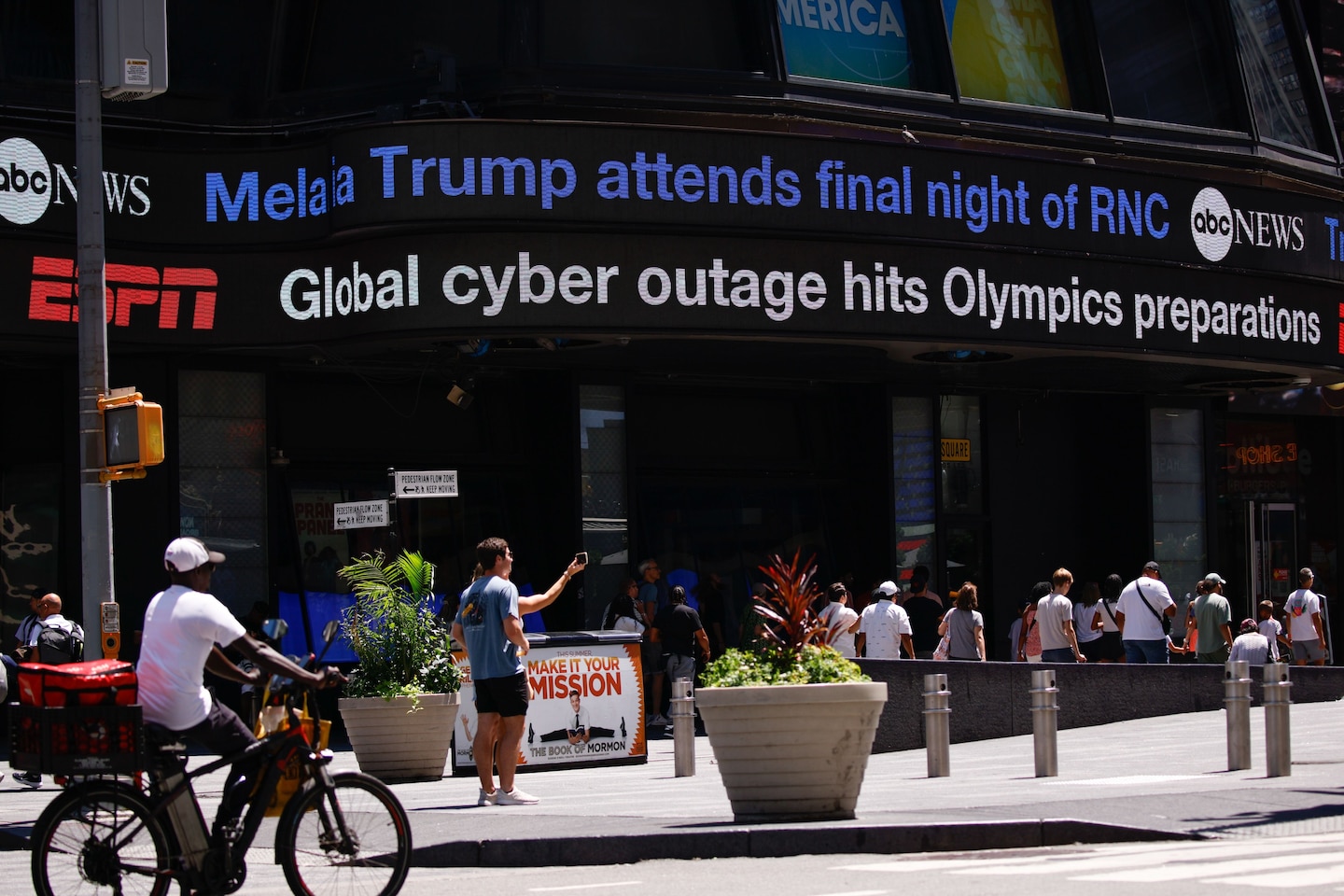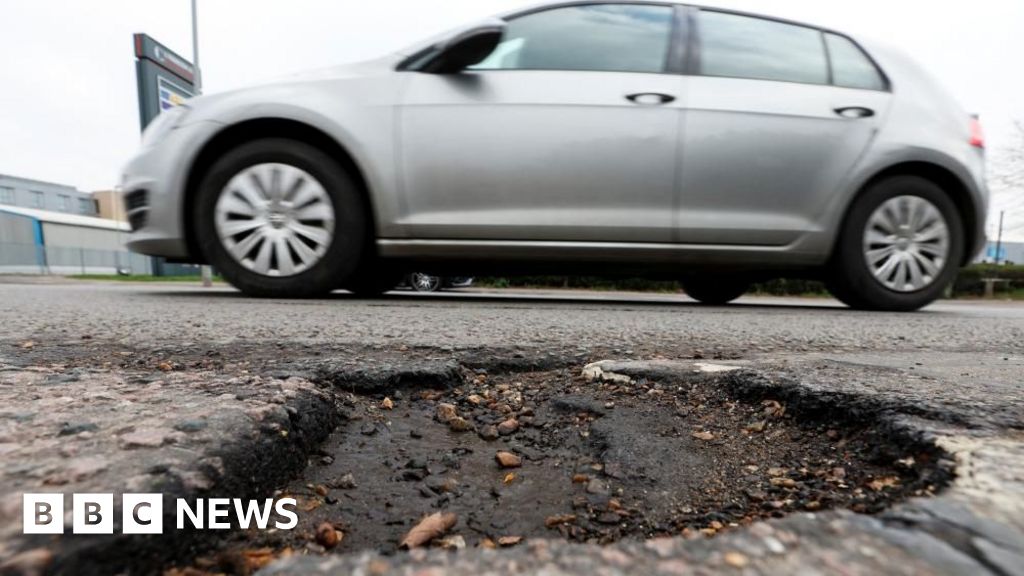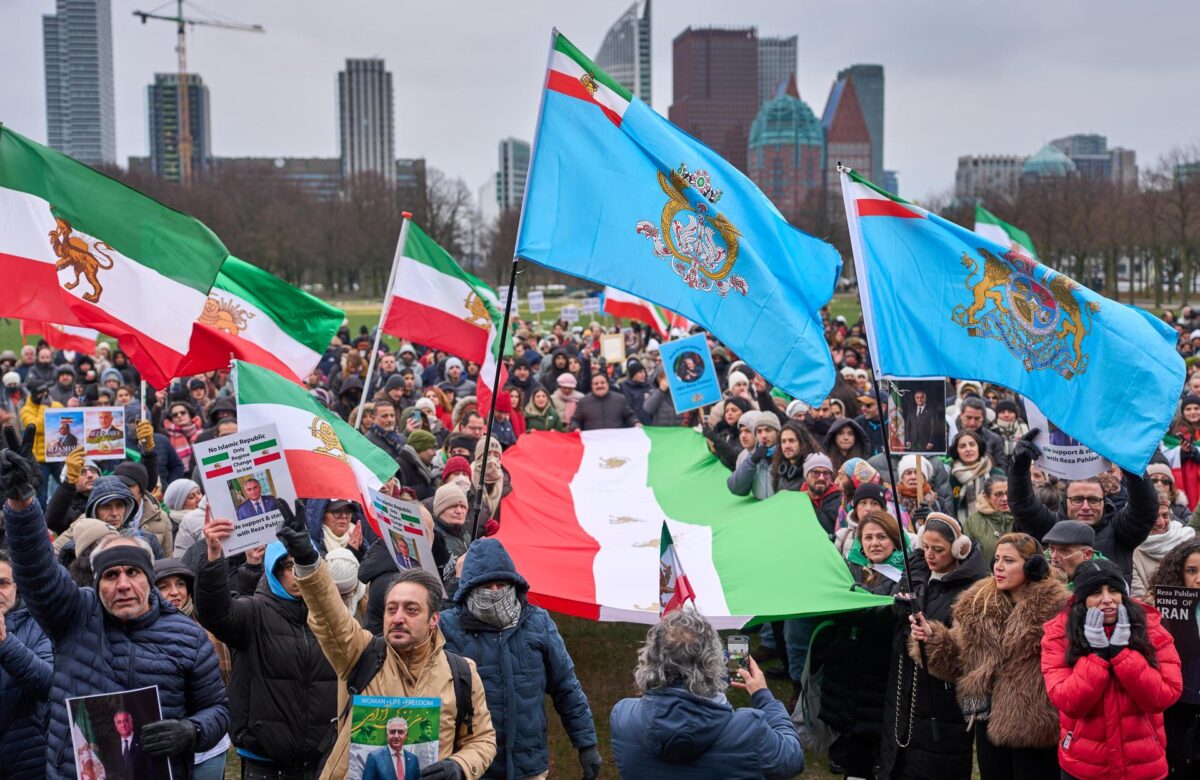
CrowdStrike outage resurfaces debunked Trump conspiracy theory
- Science
- July 20, 2024
- No Comment
- 213
There has been no evidence to suggest any link between the outage and the Republican National Convention. CrowdStrike CEO George Kurtz said a defect in an update — not a cyberattack — caused the worldwide mess, grounding thousands of flights, disrupting 911 calls and delaying hospital procedures.
But the global woe brought unexpected new life to a conspiracy theory involving Russia, Ukraine and the Democratic National Committee that took up considerable oxygen during Trump’s presidency and figured prominently in his first impeachment inquiry.
CrowdStrike then seemed an unlikely candidate for political controversy. Founded in 2011 by two former McAfee executives, the company sells cybersecurity software to Fortune 500 companies and federal and state agencies. Its first product, Falcon, an update of which was cited for Friday’s outage, detects security breaches in Windows or Mac computers. The company also advises clients on how to improve their cybersecurity.
GET CAUGHT UP
Stories to keep you informed
After a 2019 initial public offering, CrowdStrike cracked into the S&P 500 last month, a landmark the company said it had reached faster than any other cybersecurity firm.
While hawking its corporate services, CrowdStrike made its name investigating prominent hacks. In 2015, CrowdStrike linked a cyberattack on Sony Pictures to North Korea. The same year, it said it had evidence that hackers linked to China’s government may have tried to violate a U.S.-China agreement to hold off on economic espionage against one another.
CrowdStrike got embroiled in politics in 2016, when it was hired by the Democratic National Committee to investigate the hacking of DNC computers a year earlier. The company concluded it had “high confidence” that a unit linked to Russia’s military intelligence arm was responsible for the attack.
Trump repeatedly asserted that Ukraine, not Russia, had interfered in the election, a view that alarmed some of his aides, concerned that he might have been influenced by Russia. The Washington Post reported in 2019 that a former senior White House official recalled that Trump said he knew Ukraine was the real culprit because “Putin told me.”
In a phone call in July 2019 that became a key part of the evidence in Trump’s first impeachment, the then-president urged Ukrainian President Volodymyr Zelensky to investigate both former vice president Joe Biden and CrowdStrike. “I would like you to do us a favor,” he said. “… I would like you to find out what happened with this whole situation with Ukraine, they say CrowdStrike …”
The House Intelligence Committee’s Trump-Ukraine impeachment inquiry report reflected that multiple Trump aides had tried to disabuse him of the notion. Trump’s former Russia expert Fiona Hill told the committee that former homeland security adviser Tom Bossert and former national security adviser H.R. McMaster repeatedly told Trump that the CrowdStrike conspiracy theory was “completely ‘debunked,’ and that allegations Ukraine interfered in the 2016 U.S. election are false.”
In response to the conspiracy theories, CrowdStrike published an extensive Q&A in 2020 about its investigation of the DNC hack. It said that it had “proof” that Russia hacked the DNC and that its analysis was confirmed by other security companies such as Fidelis and FireEye, as well as U.S. intelligence.
Social media posts on Friday reflected that the CrowdStrike controversy was still well and alive among a section of the public.
“Today is not the first time that CrowdStrike has caused huge misery for the country, and even the world,” Hans Mahncke, a YouTube commentator, wrote in a post on X that drew thousands of likes, saying CrowdStrike’s report on the DNC hack had led to a “witch hunt” and “the criminalization of diplomacy with Russia.”
Max Blumenthal, editor of the independent website Grayzone, which has faced criticism for misleading reports, on X called CrowdStrike “the shady firm hired by the DNC to find Russia responsible for hacking its server,” and former CBS correspondent Lara Logan said CrowdStrike had been “lying for years.”
On X, Facebook and other social media platforms, hundreds of others of users piped up with fresh criticism of CrowdStrike’s 2016 report on the DNC, with some calling it a “hoax” and others speculating about whether the company could help to “steal” the upcoming election. “CrowdStrike and DNC criminality are intertwined,” one wrote. “The rot is deeper than any of you know,” another remarked. “It’s all connected,” wrote a third user.
More general misinformation about the outage was circulating on social media, including an image that purported to show the Microsoft error message across the Las Vegas Sphere. Snopes.com published a fact check on the photo on Friday, calling it fake.
#CrowdStrike #outage #resurfaces #debunked #Trump #conspiracy #theory









